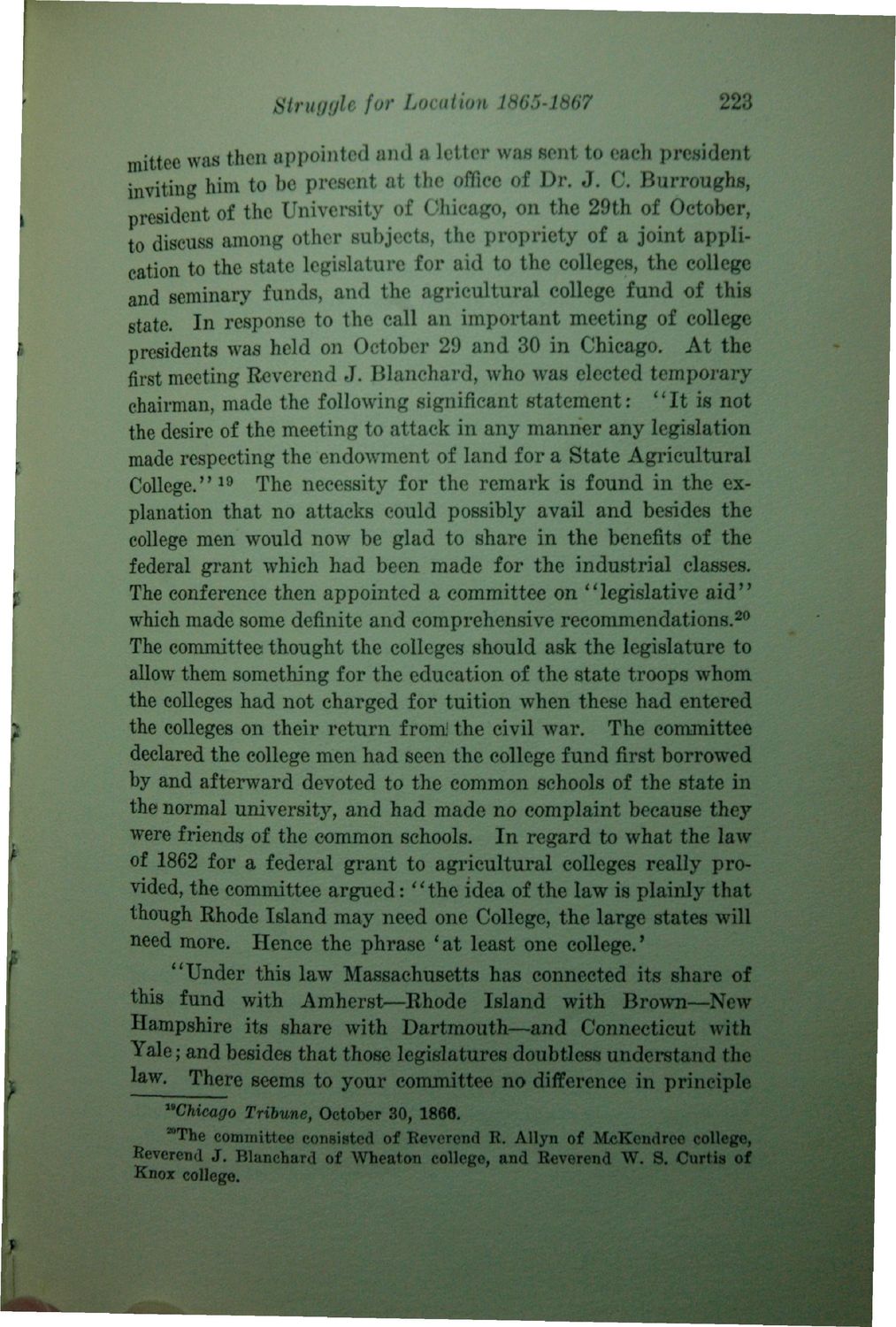| |
| |
Caption: Book - History of the University (Powell)
This is a reduced-resolution page image for fast online browsing.

EXTRACTED TEXT FROM PAGE:
Struggle for Location 1865-1867 228 mittee was then appointed and a letter was sent to each president inviting him to be present at the office of Dr. J. C. Burroughs, president of the University of Chicago, on the 29th of October, to discuss among other subjects, the propriety of a joint application to the state legislature for aid to the colleges, the college and seminary funds, and the agricultural college fund of this state. In response to the call an important meeting of college presidents was held on October 29 and 30 in Chicago. At the first meeting Reverend J. Blanchard, who was elected temporary chairman, made the following significant statement: " I t is not the desire of the meeting to attack in any manner any legislation made respecting the endowment of land for a State Agricultural College." 19 The necessity for the remark is found in the explanation that no attacks could possibly avail and besides the college men would now be glad to share in the benefits of the federal grant which had been made for the industrial classes. The conference then appointed a committee on "legislative aid" which made some definite and comprehensive recommendations.20 The committee thought the colleges should ask the legislature to allow them something for the education of the state troops whom the colleges had not charged for tuition when these had entered the colleges on their return froml the civil war. The committee declared the college men had seen the college fund first borrowed by and afterward devoted to the common schools of the state in the normal university, and had made no complaint because they were friends of the common schools. In regard to what the law of 1862 for a federal grant to agricultural colleges really provided, the committee argued: f ' the idea of the law is plainly that though Rhode Island may need one College, the large states will need more. Hence the phrase 'at least one college.1 "Under this law Massachusetts has connected its share of this fund with Amherst—Rhode Island with Brown—New Hampshire its share with Dartmouth—and Connecticut with Yale; and besides that those legislatures doubtless understand the law. There seems to your committee no difference in principle "Chicago Tribune, October 30, 1866. "The committee consisted of Reverend R. Allyn of McKendroe college, Keverend J. Blanchard of Wheaton college, and Reverend W. 8. Curtis of Knox college.
| |